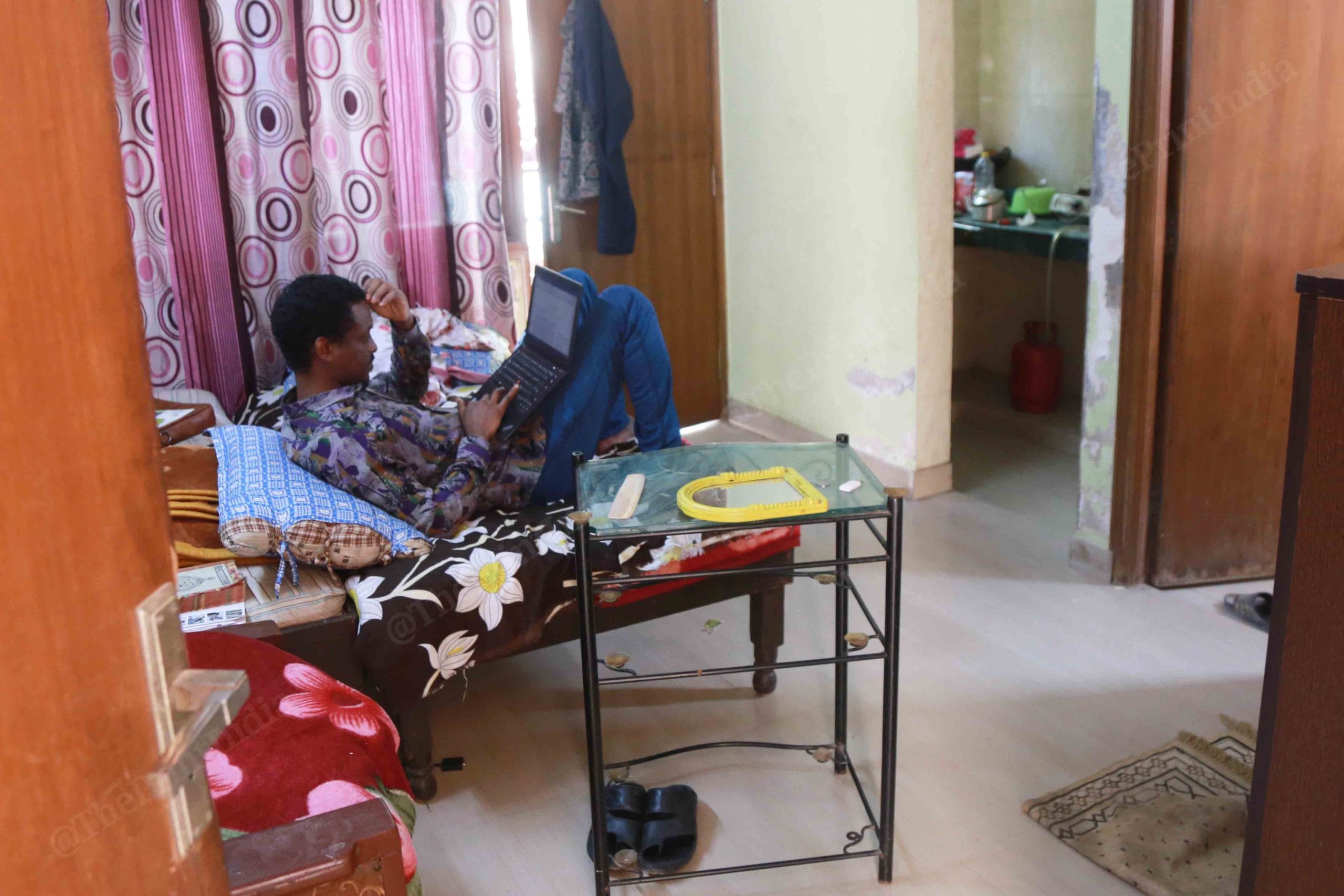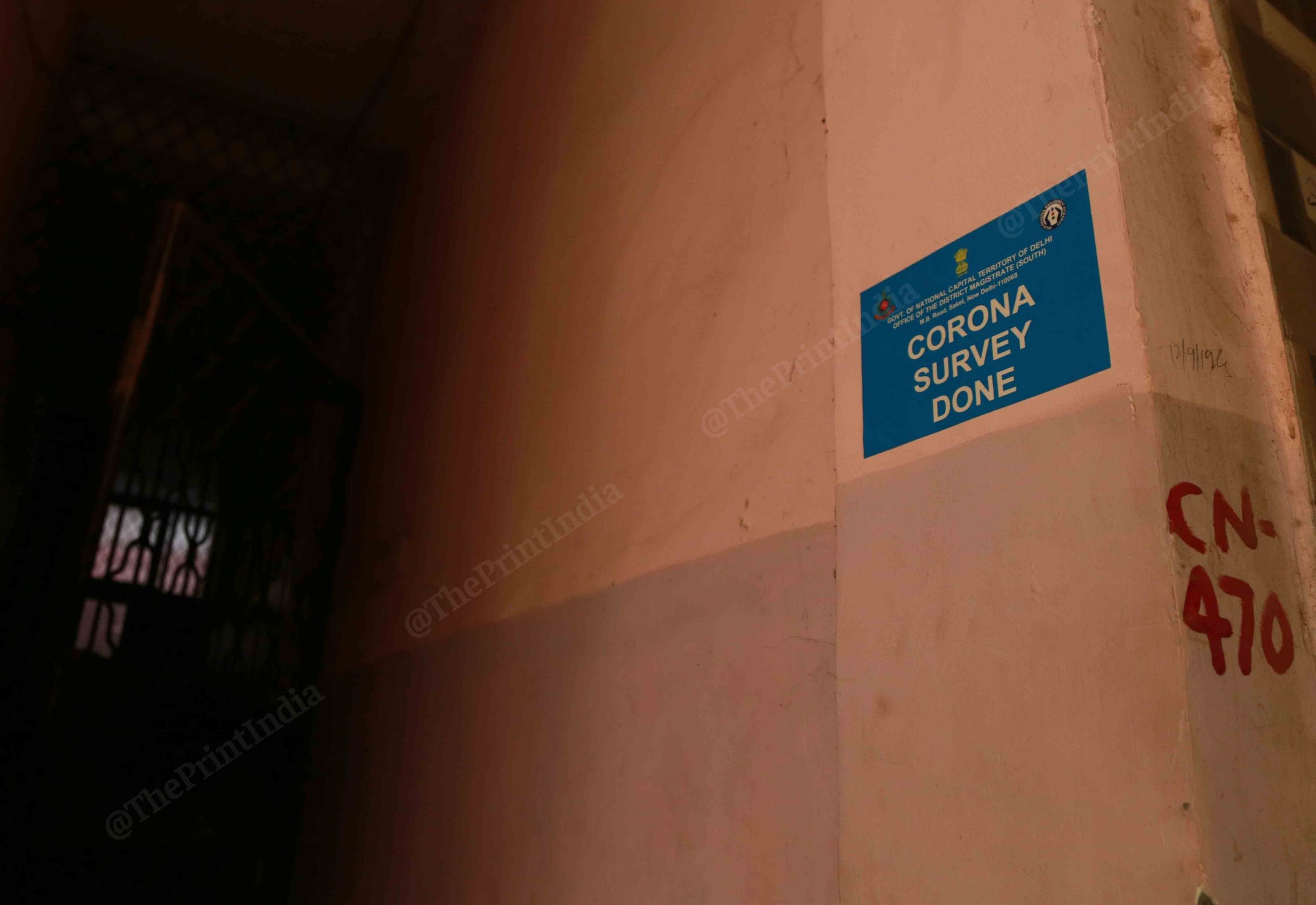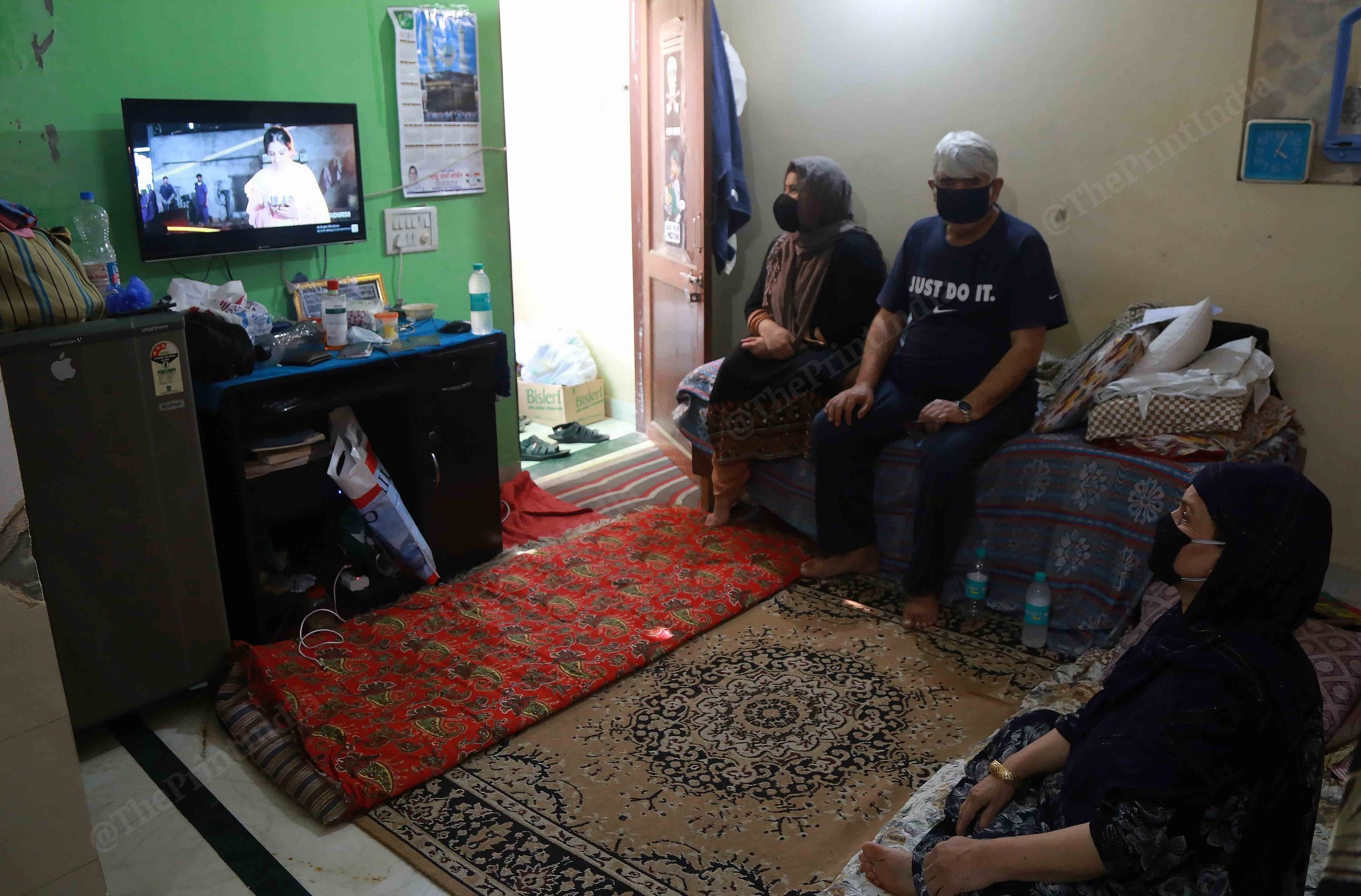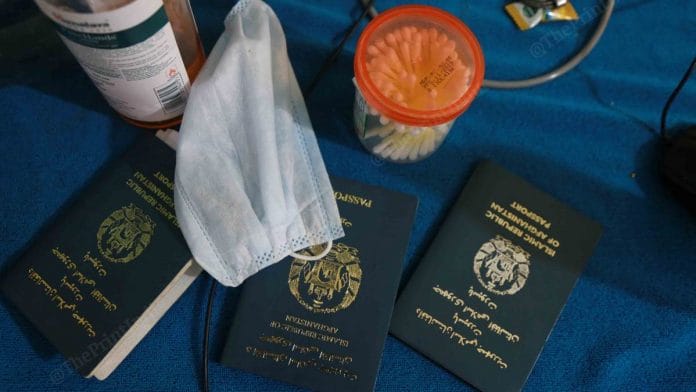New Delhi: Earlier this year, Somalia resident Abdullahi was told his eye treatment would require him to stay in India for two weeks. The 36-year-old had packed his bags accordingly and arranged to stay in a one room set-up inside the narrow lanes of Hauz Rani area in South Delhi while he underwent treatment.
He landed in India on 16 March. Exactly a week later, the nationwide lockdown was announced and he has since been stranded here.
“I had to stay here for two weeks but it’s more than two months now. I am living alone, managing everything on my own. It’s difficult, especially when you don’t know the local language,” Abdullahi told ThePrint.

Abdullahi isn’t the only one. The packed lanes of Hauz Rani provide temporary shelter to many foreign nationals from Iraq, Iran, Afghanistan, Nigeria and Somalia who come to Delhi seeking treatment at reputed private hospitals.
Situated very close to the Max Hospital in Saket, the densely-populated Hauz Rani is ideal for many.
Many foreigners come and stay here for a limited period of time — typically, for as long as the treatment lasts. Speaking to ThePrint, some of them, who have been stuck here much longer than they anticipated, say they have exhausted their finances and are surviving on the charity of locals.
Mohammed, an Afghan resident who works as a manager at a hospital in Delhi’s Chattarpur area, said, “Most of the people who come to India are from poor or middle class backgrounds. They come to get good treatment with their lives savings.”
He also said many are forced to live in cramped spaces and pay anywhere between $150 and $250 (Rs 11,000 – Rs 20,000 approximately) each month as rent for houses in Hauz Rani.
Listed among the containment zones in Delhi, Hauz Rani’s lanes are so narrow and packed with settlements that only some small parts of it get adequate sunlight.

Another Afghan, Abdul Hamad Rahimi, who suffers from a mental illness, had come with his family to India for treatment earlier this year. But the 29-year-old went missing from Hauz Rani sometime in February. “Now we are waiting for him. We cannot go back without taking him,” his cousin Mohammed Sadaq told ThePrint. The family has registered a missing persons complaint with the Delhi Police.
Haees, also from Afghanistan, works as a translator to help hospital staff and patients communicate. The lockdown has limited his clientele. “I know some families are struggling to get back home, but they are helpless. Even I am unable to earn since new patients have not been coming,” he said
He holds an UNHRC refugee card and had come to India three years ago in search of employment. Translators like him are often the first point of contact for many foreigners.
Also read: Delhi industries get govt nod, but also need workers, supply, demand to get back to work
‘Our visas have expired’
Hauz Rani has turned into a home not only for people seeking treatment, but also for many others who come on short personal trips. These people are also stranded here currently.
Some foreigners were able to go back home via specially-arranged flights, but others got stuck due to their short-term visas expiring.
A Turkmenistan national, who did not wish to be named, told ThePrint that around 100 people from his country are currently stranded in India. “I contacted our embassy but we have no flights as of yet and we have been told that we will have to wait till the lockdown ends,” he said.
Having run out of money, he said he has been surviving on naan. He also said he would be unable to pay this month’s rent.
ThePrint tried getting in touch with the embassy of Turkmenistan over phone but didn’t receive a response until the time of publishing this report.
A retired army veteran from Afghanistan, Mehtabbuddin, had come to attend a wedding in India with his wife Sona and daughter Tabassum just before the lockdown was announced. They have since been staying in Hauz Rani with his son Abdullah, who is a BBA student in Delhi’s Jamia Millia Islamia.
“Our visas have expired. We are not getting any response from the embassy. We are facing a lot of difficulty in terms of food and finances,” said Tabassum.
Mehtabbuddin’s family of four has been living in a room on the top floor of a small building in Hauz Rani, which has a small kitchen and a bathroom on the side.
“The temperature is rising and the summer is getting unbearable,” Tabassum said.

ThePrint contacted the Afghanistan embassy as well through email and phone calls but did not receive a response until the time of publishing this report.
However, the Afghan Embassy has been using social media to reach out to citizens, asking them to contact airlines to find out about flights being arranged.
?Important announcement: We are facilitating 1 special flight from #Pune to #Kabul on 22nd of May & 2 flights from Delhi to Kabul on May 21st & 23rd to help those students wishing to get back home. Another flight taking off Delhi to Kabul today. Contact airlines for arrangements pic.twitter.com/zqPhtlPx14
— Tahir Qadiry طاهر قادرى (@tahirqadiry) May 19, 2020
Also read: Hundreds of migrants in queue at Delhi’s Chhatarpur, all desperate for a ticket home
A different Ramzan
Away from their families and with little money to get by, Ramzan has been entirely different for many of these foreigners. Most of them remain confined to their homes and only come out when it is time for iftaari (breaking the fast).
Abdul Waheed, a bread-maker who is also from Afghanistan but has been living in Hauz Rani for the last three years, said, “At least 200 to 300 foreigners come to my shop everyday to buy naan. They are really distressed and often try to share their worries with me.”
Also read: This small, remote village on UP-Bihar border is feeding thousands of hungry migrant workers







These people are our guests and I with they get a speedy recovery and good health.
Eid Mubarak to all my Muslim brothers and sisters.
Accept the blessings of Allah with all your heart and forget the sorrows that burden your soul
Muslims are coming to Hindu majority India and look how nicely Hindus are providing taking care of them, still propaganda by fourth grade converted Islamists here